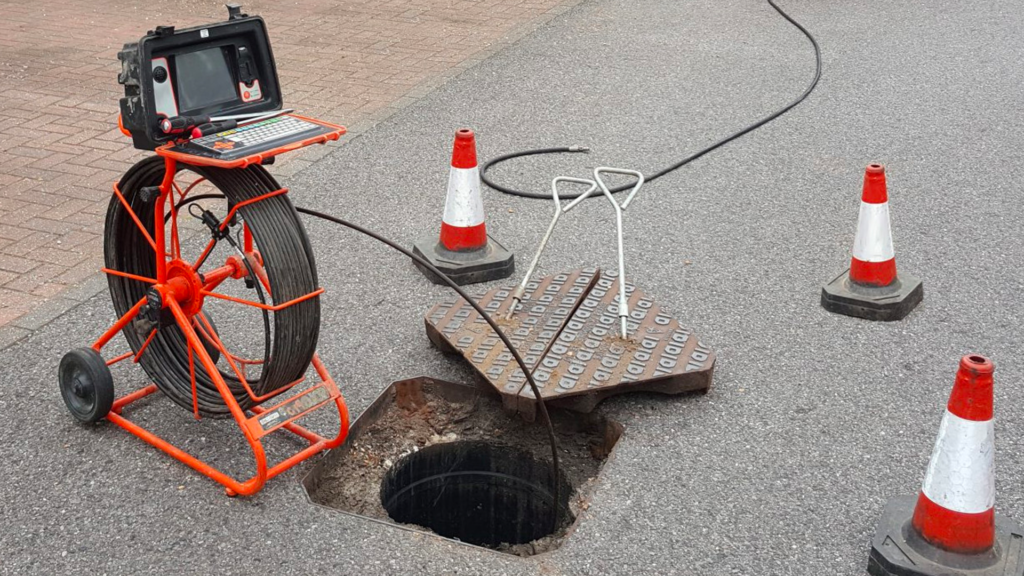Some Known Details About Reclaim Waste
Some Known Details About Reclaim Waste
Blog Article
The Only Guide to Reclaim Waste
Table of ContentsAn Unbiased View of Reclaim WasteUnknown Facts About Reclaim WasteThe smart Trick of Reclaim Waste That Nobody is Talking AboutReclaim Waste Things To Know Before You BuyThe Only Guide to Reclaim Waste
Explore the types, occurrences, and forms of fluid waste. Residential sewer waste describes the waste and products from a household sewage-disposal tank. This sort of waste is developed by human beings in homes, schools, and other structures. This only includes septic tanks that have a drain field. The appropriate management and disposal of residential sewage waste call for liquid waste to be transferred to a sewer therapy plant where the correct techniques and devices are used to purify and get rid of waste.
Business waste usually consists of possible threats, such as flammable materials or a combination of fluid and strong waste products, and requires an advanced and in-depth disposal procedure. The disposal of industrial waste typically involves the purification of waste prior to transport to make certain secure and appropriate disposal. Industrial waste is created from by-products and drainage of commercial procedures and manufacturing.
This sort of waste can not utilize the same sewer management transportation or procedures as septic or commercial liquids. The hazardous waste administration process needs the examination and screening of liquid waste before it goes through the disposal procedure (liquid waste removal melbourne). Drainage waste is the liquid waste that originates from runoff and excess stormwater in extremely booming locations or cities
Drainage waste can cause contamination and flooding otherwise dealt with effectively. Find out more about sewage system cleansing and waste management. Ensuring correct waste management can avoid disasters and reduce ecological harm. Both people in residential settings and professionals in business or manufacturing sectors can gain from comprehending the processes and policies of fluid waste monitoring.
Little Known Facts About Reclaim Waste.
Get in touch with PROS Providers today to discover our waste management and disposal services and the correct methods to look after the liquid waste you create.
(https://giphy.com/channel/reclaimwaste1)Do you understand what happens to your water when you pull the plug, purge the commode or drain pipes the cleaning equipment? No? Well, it deserves understanding. This so-called 'wastewater' is not just an important source yet, after treatment, will certainly be launched to our land, rivers or the ocean. Used water from bathrooms, showers, baths, kitchen area sinks, laundries and industrial procedures is called wastewater.

water utilized to cool down machinery or tidy plant and devices). Stormwater, a kind of wastewater, is overflow that streams from agricultural and metropolitan locations such as roof coverings, parks, gardens, roads, courses and seamless gutters right into stormwater drains, after rainfall. Stormwater moves neglected directly to neighborhood creeks or rivers, ultimately reaching the ocean.
Some Known Facts About Reclaim Waste.
In Queensland, many wastewater is treated at sewer therapy plants. Wastewater is delivered from domestic or commercial websites with a system of drains and pump terminals, recognized as sewerage reticulation, to a sewer treatment plant.
The Division of Natural Resources advises local governments concerning handling, operating and keeping sewage systems and treatment plants. In unsewered areas, city governments might require owners to mount specific or house sewage treatment systems to treat domestic wastewater from bathrooms, kitchen areas, restrooms and laundries. The Department of Natural Resources authorizes the usage of home systems when they are proven to be reliable.
The majority of stormwater receives no therapy. In some new class, treatment of some stormwater to eliminate clutter, sand and gravel has actually begun using gross pollutant traps. Wastewater therapy happens in four phases: Removes solid issue. Bigger solids, such as plastics and various other things incorrectly discharged to sewage systems, are eliminated when wastewater is gone through screens.
Utilizes little living microorganisms recognizes as micro-organisms to break down and get rid of continuing to be view it now dissolved wastes and fine bits. Micro-organisms and wastes are integrated in the sludge.
The Best Strategy To Use For Reclaim Waste
Nutrient removal is not available whatsoever sewage therapy plants since it requires expensive specialised devices. It is coming to be more usual in Queensland. Clear fluid effluent generated after therapy might still contain disease-causing micro-organisms. If this effluent is released right into waterways such as rivers or the sea, the micro-organisms will at some point die out.

Most wastewater streams right into the sewage system. Under the Act, regional federal governments administer approvals and licences for ecologically pertinent activities (Ages) involving wastewater releases that may have a regional effect.
9 Simple Techniques For Reclaim Waste
Or else, examples are considered lab evaluation. Frequently several tests are required to develop the degrees of each of the various pollutants such as oils, heavy metals and pesticides in water. Monitoring provides factual information about water quality and can verify that permit conditions are being fulfilled. The information gotten with tracking gives the basis for making water top quality decisions.
Report this page